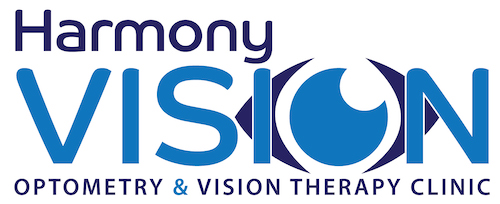Info for Optometrists
Info for Optometrists
Thank you for choosing Harmony Vision for the care of your patients. We continue to work hard to develop our practice as a trusted provider of comprehensive functional vision assessments and vision therapy. This includes infant and children vision, strabismus and amblyopia, traumatic brain injury and special populations, and the provision of office based vision therapy, custom contact lens for difficult eyes and orthokeratology.
Additional assessment of functional vision skills and vision therapy
We have many years of experience in managing paediatric vision problems and delivering vision therapy/training. Please contact us if you feel you need assistance with any difficult cases. Certain types of care require specific equipment, testing methods, treatment methods, or massive time commitments that would overload offices not equipped to handle them.
Behavioural Optometry & Vision Therapy
In the area of behavioural vision care, visual therapy, vision training, and complex case consultation, our practice exists to supplement and assist those eye care professionals who would prefer to concentrate on other aspects of vision care. Complex cases may include: functional binocular vision disorders; post-traumatic vision syndrome; aquired brain injury; learning related vision problems and patients from special populations (such as Autism, ADD/ADHD, Down’s syndrome and Cerebral Palsy).
Complex Contact Lens Cases & Orthokeratology
We have experience fitting rigid lenses, including mini-sclerals and orthokeratology lenses to help improve vision for people with post-surgical corneas, keratoconus or wanting help with myopia control. We have a corneal topography and a great number of different contact lens trial sets to assist with difficult cases.
Strabismus and Amblyopia
We can assess children from infancy, and are confident with strabismus and amblyopia cases, including children and adults who have had multiple surgeries.
Resources
The following has been set up to give you access to assistance, research and guidelines.
Dominic Maino has provided a great summary on the co-management and identification of functional vision disorders, titled “Identifying Binocular Vision Disorders”.
The CITT group has demonstrated that office-based vision therapy is the most successful way to treat the convergence insufficiency when compared to pencil push-ups, computer home vision therapy and placebo. This is in alignment with the way we practice vision therapy. Read the NEI press release.
Convergence Insufficiency is one of the most common functional vision problems, and the CITT research has shown that normal NPC testing techniques will often miss the problem. The American Optometry Association AOA has provided guidelines on 2 more techniques that primary care optometrist can use to identify CI.
We can also provide optometrists on the Gold Coast with workshops to develop their diagnostic and lens prescribing decisions for accommodation convergence disorders – click here to email us for more information.
Email Paul with any patient management questions you have.
How to make an effective referral to Harmony Vision.
Case history and presentation – complex cases usually come with a complex history! Discuss your patients’ symptoms and reassure them that some of their more “unusual” symptoms are potentially linked to their vision problems. Our appointments allow plenty of time to discuss history and symptoms, including any injuries.
Referrals – please list the patients’ personal details, main complaints and your recommendations (ie referral). Please ensure any referrals from Optometrists include a Provider Number. Please fax referrals to 07 55204388, or email to dispenser@harmonyvisioncare.com.au.
Fees – please be aware we are a non-bulkbilling practice. We prefer that referrers refrain from discussing our fees, so that we can clarify theses costs directly with the patietn. We appreciate your time is valuable, and encourage you to direct your patients to phone us with enquiries regarding appointments and fees. Our consultations do attract the standard Medicare rebates.
Information/brochures and business cards – we understand your time is valuable and we appreciate you trusting your patients to our care. In order to facilitate this, please contact our practice to request business cards, information brochures or referral pads.
Reporting – please ensure you keep us up to date with your address details in order that we can continue to keep you informed about your patients’ care.
